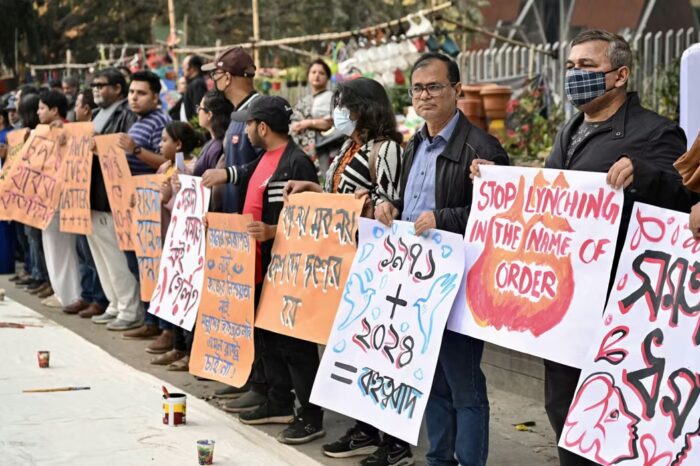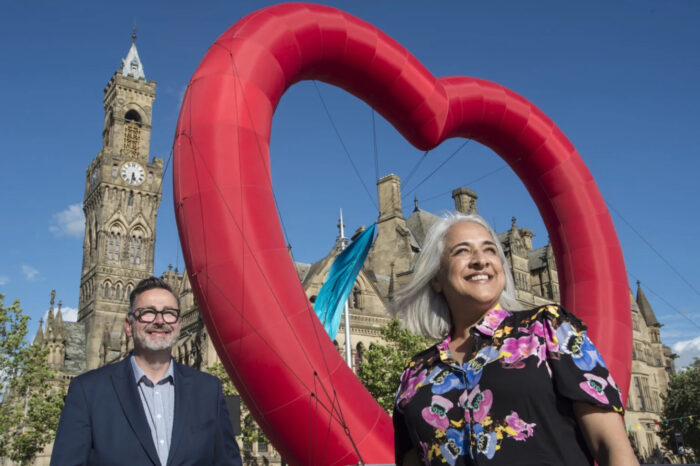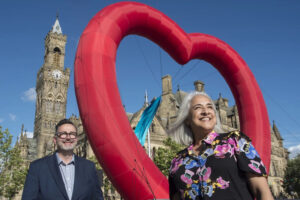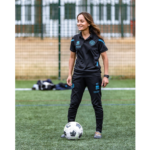Britain’s first Asian female Assistant Head of Coaching: an exclusive interview with Manisha Tailor MBE

Image by Manisha Tailor
As an Assistant Head of Coaching at Queen’s Park Rangers FC, Manisha Tailor has made history by becoming the first woman and the first person of South Asian heritage to hold the position. Her journey to following her lifelong passion for football is nothing short of inspirational.
Forging a path in the world of the popular sport which has by far been male-dominated, Tailor is a testament to the fact that with passion, resilience and faith, one can achieve whatever they want. Football is not just a sport for her, it is a means to connect with her childhood and being a voice for countless Asian women who are still to see the light of the day when it comes to playing the sport professionally.
In an exclusive interview, Manisha tells us about her childhood, sources of inspiration, her journey so far and her views on the representation of Asian women in football today.
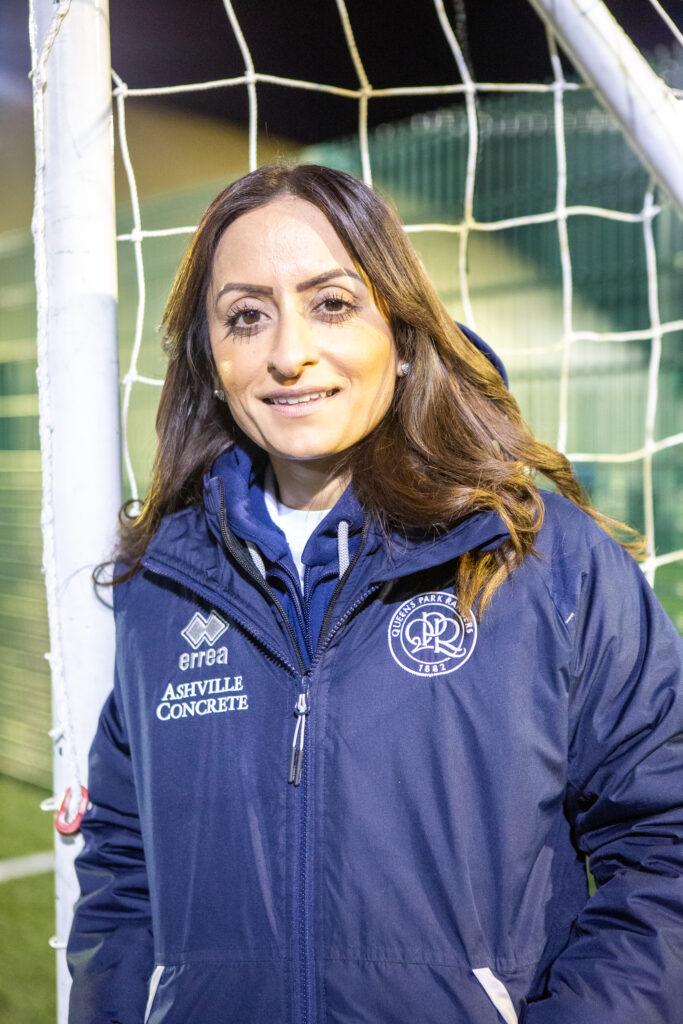
Image by Manisha Tailor
Tell us about a fond memory you have from your childhood.
“Playing football at primary school brings back great memories. I remember we were only allowed to play with a tennis ball as larger footballs were not allowed in the playground. Me and my classmates would be talking about our teams, form rivalries – it was a lot of fun.”
What was your upbringing like?
“I have had a great upbringing. My parents came to England from Kenya with little education and no jobs. It was really hard for them living in England in the late 60s, trying to immerse themselves in British culture and not always being accepted by others. So they made sure that me and my brother were always cared for in the best way that they could. We didn’t have the latest trainers, clothes or gadgets, but we had the essentials to live a happy life. That’s why my parents wanted me and my siblings to have an education – something that they didn’t have access to; and with this education, gain security to enjoy life’s pleasures, which is something that we can all now do.”
Who would you consider to be a figure of inspiration in your life?
“I would say my mum is my figure of inspiration as a woman. She is bold, strong and courageous. When my twin brother had a mental health breakdown more than 20 years ago, she was the pillar of hope and strength which motivates me to do and be better.”
You had to leave your job in the field of education to take care of your twin brother, what led you take such a big step and what challenges did you face during this period?
“I felt a connection between me, my brother and football. I thought that perhaps I could feel closer to him and at the same time, I was trying to really figure out who I was, what I wanted and that led me to finding my real purpose which I believe to be to make a difference in the game.”
When and how did your passion for football begin?
“I have always had a passion and love for football. It was something that me and my brother shared as youngsters. My parents also had a keen interest in sport which is something that we shared as a family.”
How did your career as a coach start?
“I began delivering afterschool and lunch time clubs in the early 2000s as a class teacher. I didn’t have any coaching qualifications at the time – it was just something that I enjoyed and wanted to do. I was really proud to have set up the 1st football club at a Hindu faith school in 2002 and it was amazing to see the number of South Asian girls and boys involved in the game. As I continued my teaching career, I met former England International footballer, Rachel Yankey, who introduced me to coaching badges. It was in 2009 that I started my Level 1 coaching qualification which led me to my Level 2 and now I find myself working in the boys’ professional game as the 1st person of South Asian heritage to hold the title of Assistant Head of Coaching at QPR, across the football league and an A Licence coach.”
Who are the people who have supported and uplifted you in your journey?
“Chris Ramsey, QPR’s Technical Director and Head of Coaching has been a pillar of support to me along my journey. He not only has an incredible wealth of knowledge, but is also a people’s person and understands how to get the best out of someone. He provides me with the much-needed guidance that is helping me navigate my way through a male dominated environment.”
What was the licensing and training process like when you were preparing to become a coach?
“It is important to take the time to learn your trade and get experience on the grass. I worked in a range of environments such as school programmes, grassroots clubs, girls’ development centres as well as working with boys. I feel that this variety helped me to become adaptable and more versatile with my delivery. The courses now involve the introduction to football which can be completed online, the UEFA C, UEFA B, UEFA A and Pro Licence.”
Could you highlight any favourite moment or milestone in your career that has stayed with you?
“When I was promoted to Assistant Head of Coaching it was a milestone moment. To be the first in this role in the country highlighted that dream are possible and the mentoring from Chris Ramsey demonstrated that with hard work and guidance, anything is possible – all you need is fairness in opportunity.”
How did you feel when you started out as a coach at Queens Park Rangers Football Club?
“It has been thoroughly enjoyable – I have had the opportunity to work with a range of age groups across the development pathway and am continuing to enjoy my time at the club. People were welcoming and were willing to take me under their wing which has helped towards where I am now.”
Were there any barriers or challenges that you had to face and tackle as a young female Asian football coach?
“I don’t believe the women’s game is reflective of the South Asian girls and women who actually play the game. Talent centres are located in areas that are not easily accessible and certainly not in the heart of our communities. Unfortunately, I didn’t have access to girls’ academies as a young girl growing up in the 80s. We are losing a pool of potential talent because the girls can’t actually get to the sessions or games which is something I think this is something that needs to be addressed if we are to see an England team truly reflective of the diverse England that we know.”
What do you think about the representation of Asian female footballers in the UK?
“Although governing bodies are being more active in trying to redress the balance of the number of South Asian females that play football to those who represented on the pitch, we recognise that change is still needed in ensuring that there is fairness in opportunity when players are being scouted / recruited. We must however recognise the positives within the game such as Millie Chandarana, Mariam Mahmood, Layla Banaras, Roops Kaur, Ryeesa Sekhon to name but a few who are an example of the progress that is being made.”
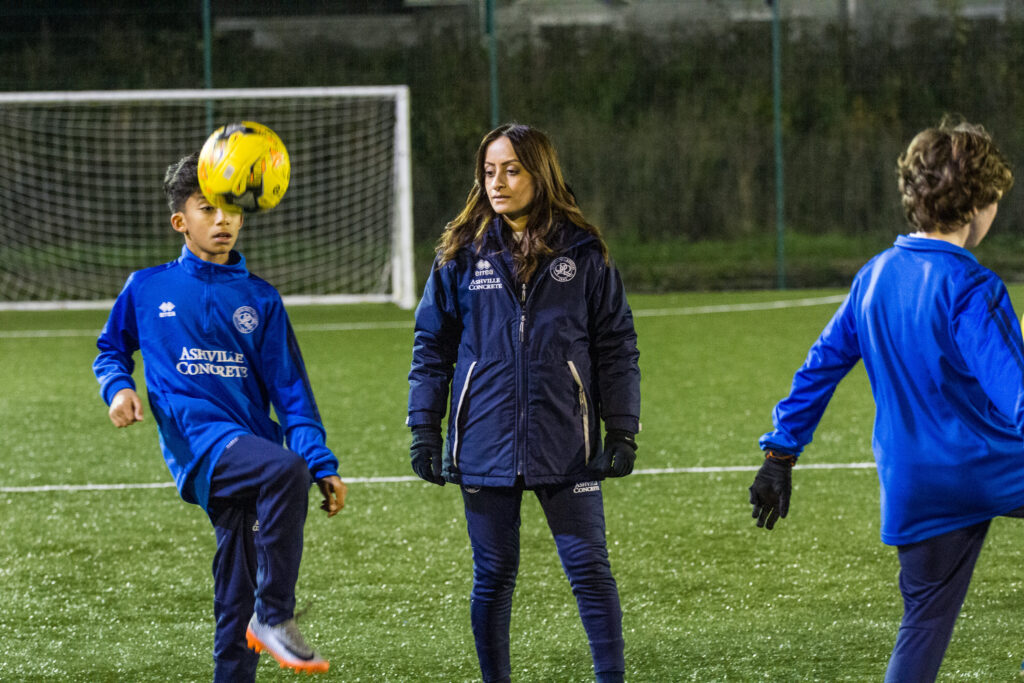
Image by Manisha Tailor
What would you say to young female players who want to have a successful career in football in the UK?
“Enjoy yourself as this will help you maintain a positive mindset. Be committed to your learning, be that at training or games and be open to taking advice from your coaches and other adults alike. Lastly, I would say persist and be resilient as you are the future of the game.”
You have recently authored a book highlighting the roles that Asians play in football today. Could you tell us more about it and the process behind writing it?
“During my time as a teacher, I had worked across various schools and within different cultural demographics and had always pondered upon the question of why there were few educational texts, supported by illustrations, of people from diverse communities; texts that represented the children that we had in our school and the different schools that I worked in.
“When I transitioned into working in football, I found that although improving, there remained a lack of representation from the South Asian community across all levels of the game, despite it being one of the largest ethnic minority groups to be living in the UK.
“During the first lockdown I was on furlough and spent much time going back to the question that I had pondered upon as a teacher, but this time I had the time to think and plan ideas that could provide solutions to this issue – from there the idea of creating a children’s story book was born.
“I think that as this book contains a variety of different narratives as so many work in a variety of roles within the world of football, it will compel parents and women to dream and believe that there is a space for them in the game. The book highlights the challenges that different individuals have faced and the strategies that they have used to overcome setbacks. There is an emphasis on signature strengths that have helped those featured to be the best possible version of themselves. This is something that children and adults can reflect upon.
“Young people need to see people like them in order to believe that dreams are possible. I would like this book to start conversations about overcoming adversity, using role models within the industry. I would also like to open conversations about mental health, using the lessons for good mental health and questions for thinking. This should encourage families to explore and share their beliefs about representation in elite sport, career pathways and mental health.
“I believe that this book is for the future of football – it’s for all those with a football dream. They can see people like them and believe that one day they could be the future trailblazer.”
Tailor, whose dedication and hard work have contributed towards her achievements which many thought would never be possible, also holds the UEFA A Licence in Football Coaching and Advanced Youth Award. She is also a qualified head-teacher with a master’s degree and more than 15 years of experience teaching school children. She was honoured with an MBE in 2017 for ‘services to football and diversity in sport’.

